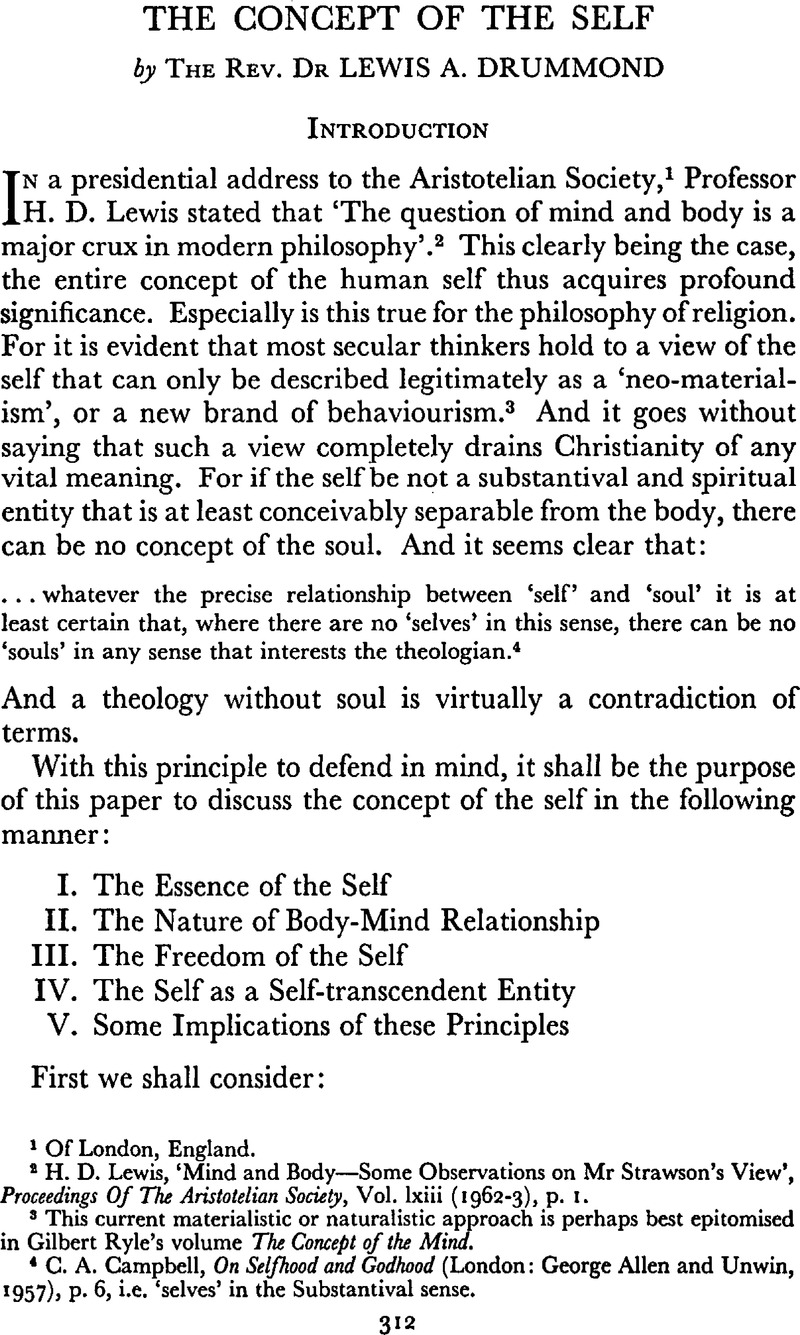No CrossRef data available.
Article contents
The concept of the self
Published online by Cambridge University Press: 02 February 2009
Abstract

- Type
- Article Review
- Information
- Copyright
- Copyright © Scottish Journal of Theology Ltd 1968
References
page 312 note 1 Of London, England.
page 312 note 2 Lewis, H. D., ‘Mind and Body—Some Observations on Mr Strawson's View’, Proceedings Of The Aristotelian Society, Vol. lxiii (1962–1963), p. 1.Google Scholar
page 312 note 3 This current materialistic or naturalistic approach is perhaps best epitomised in Gilbert Ryle's volume The Concept of the Mind.
page 312 note 4 Campbell, C. A., On Selfhood and Godhood (London: George Allen and Unwin, 1957), p. 6Google Scholar, i.e. ‘selves’ in the Substantival sense.
page 314 note 1 This is true, of course, only as far as we can examine the self through the fact of self-consciousness.
page 315 note 1 Paul describes such an experience in 2 Cor. 12.2–4.
page 315 note 2 A convincing polemic by C. A. Campbell against Gilbert Ryle's entrenched position is found in The Philosophical Quarterly, Vol. 3.
page 315 note 3 Campbell, op. cit., p. 102–3.
page 317 note 1 Campbell, , On Selfhood and Godhood, pp. 149–150.Google Scholar
page 318 note 1 ibid., p. 150.




